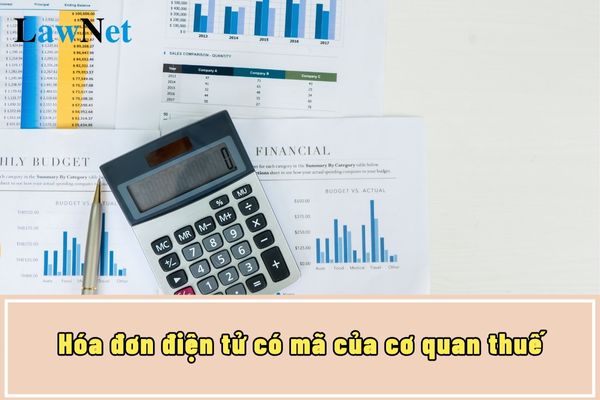If the seller is unable to send authenticated e-invoices because of certain issues, should it be reported to the tax authority in Vietnam?
If the seller is unable to send authenticated e-invoices because of certain issues, should it be reported to the tax authority in Vietnam?
Based on Article 20 of Decree 123/2020/ND-CP, it is stipulated as follows:
Handling incidents related to authenticated e-invoices
1. In the event that a seller of goods or provider of services uses authenticated e-invoices but encounters an incident leading to the inability to use these invoices, they must contact the tax authority or a service provider for assistance in resolving the issue. During the incident resolution period, if the seller of goods or provider of services needs to use authenticated e-invoices, they should go to the tax authority to use these invoices.
2. If the tax authority's code-issuing system encounters an incident, the General Department of Taxation will implement technical solutions to switch to a backup system and is responsible for notifying these incidents on the e-portal of the General Department of Taxation. The General Department of Taxation selects certain qualified service providers of e-invoices to authorize the issuance of e-invoice codes if the tax authority's system encounters an incident.
In the event the tax authority's incident has not been resolved, the tax authority will have a solution to sell invoices printed by the tax authority to certain organizations and individuals for use. Once the tax authority's code-issuing system is repaired, the tax authority will notify organizations and individuals to continue using authenticated e-invoices no later than 2 working days from the deadline stated in the tax authority's notification. Organizations and individuals must submit a report on the usage of paper invoices purchased from the tax authority according to Form BC26/HDG Appendix IA issued with this Decree.
3. In cases of technical infrastructure failure of the e-invoice service provider, the provider must inform the seller and coordinate with the General Department of Taxation for prompt support. The e-invoice service provider must resolve the incident as quickly as possible and have measures to assist the seller in creating e-invoices to send to the tax authority for code issuance in the shortest time.
4. If the e-portal of the General Department of Taxation encounters a technical error and cannot receive data of e-invoices without codes, the General Department of Taxation is responsible for notifying on the e-portal. During this time, organizations, enterprises, and e-invoice service providers temporarily do not transfer data of invoices without codes to the tax authority.
Within 2 working days from the date the General Department of Taxation announces that the e-portal is operating normally again, service-providing organizations and enterprises must transfer invoice data to the tax authority. Sending invoice data after the notification of technical errors of the e-portal will not be considered a delay in sending e-invoice data.
Thus, according to the above regulation, authenticated e-invoices that are faulty and cannot be sent must contact the tax authority or service provider for assistance in resolving the issue.

If the seller is unable to send authenticated e-invoices because of certain issues, should it be reported to the tax authority in Vietnam? (Image from the Internet)
Who has the responsibility to send authenticated e-invoices to the buyers in Vietnam?
Based on Article 21 of Decree 123/2020/ND-CP, it is stipulated as follows:
Responsibilities of the seller of goods or provider of services using authenticated e-invoices
1. Manage the names and passwords of accounts provided by the tax authority.
2. Create e-invoices for selling goods or services to send to the tax authority for code issuance and bear legal responsibility for the legality and accuracy of the e-invoices.
3. Send authenticated e-invoices to the buyer immediately after receiving them.
Thus, sending authenticated e-invoices to the buyer is the responsibility of the seller of goods or provider of services using authenticated e-invoices.
What are regulations on authenticated e-invoice in Vietnam?
Based on Article 3 of Decree 123/2020/ND-CP, it is stipulated as follows:
Definitions
In this Decree, the following terms are understood as follows:
1. Invoice is an accounting document created by the organization or individual selling goods or providing services, recording information on such sales or services. Invoices can be in the form of e-invoices or invoices printed by the tax authority.
2. e-invoice is an invoice with or without a code from the tax authority. It is in e-data form created by the organization or individual selling goods or providing services using e-means to record sales and services information following accounting and tax laws, including cases where invoices are generated from cash registers connected to transfer e-data to the tax authority, in which:
a) An authenticated e-invoice is an invoice provided with a code by the tax authority before being sent by the organization or individual selling goods or providing services to the buyer.
The tax authority code on the e-invoice includes a transaction number, which is a unique number generated by the tax authority's system and a character string that the tax authority encrypts based on the information provided by the seller.
b) An e-invoice without a tax authority code is an invoice sent by the seller of goods or services to the buyer without a tax authority code.
...
Thus, an authenticated e-invoice is defined as an e-invoice that the tax authority issues a code for before the organization or individual selling goods or providing services sends it to the buyer.

